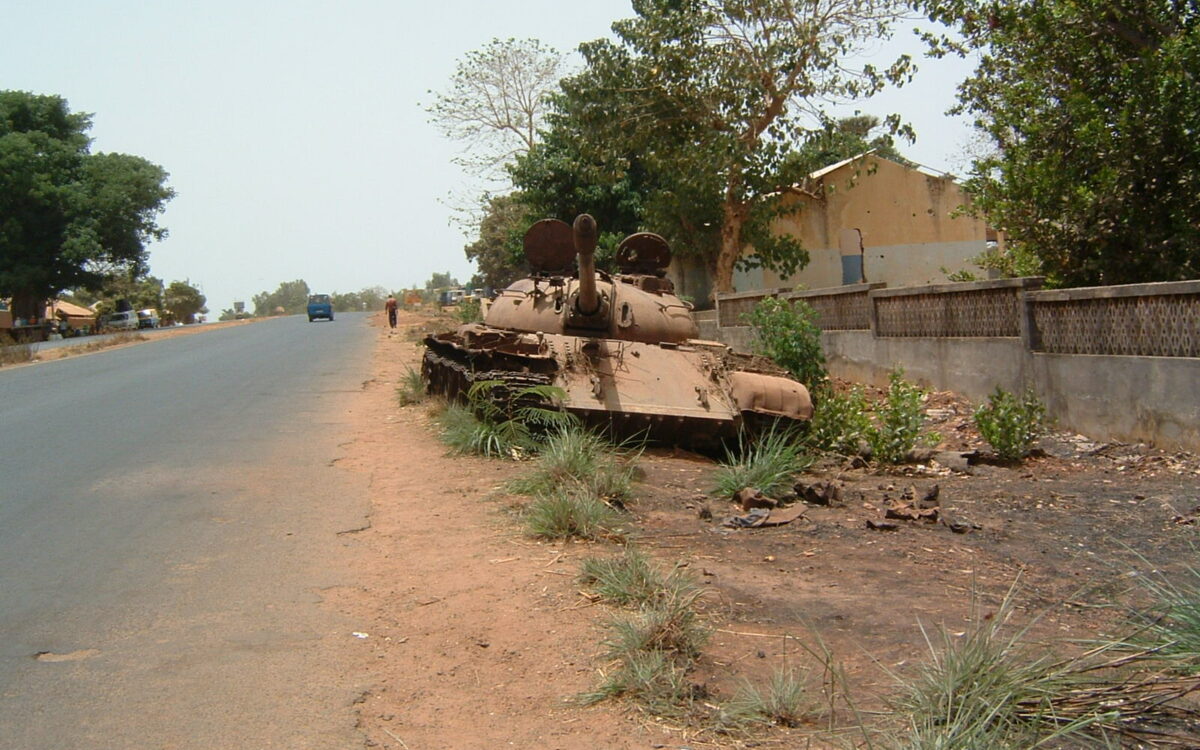
Erica De Bruin
“The potential for the military to undermine postwar peace means that close attention should be paid to addressing sources of civil-military tension. Scholars should prioritize identifying guidelines for rebel-military integration that can make the process go more smoothly.”
The UN’s Sustaining Peace programme places “primary responsibility” for leading the process of building and sustaining peace in post-conflict settings with national governments and authorities. Yet governments are composed of several different actors, each of which may be affected by the peace process in different ways. The state’s military represents a particularly important actor within the government—one with the power to veto political and military reforms crucial to preventing conflict from resuming. As such, sustaining peace requires understanding how and why militaries may attempt to impede post-conflict reform.
How militaries can veto post-conflict reform
There are several ways that militaries can impede or undermine post-conflict reform. Military officers can put pressure on civilian leaders to water down efforts to reform the security sector, or slow-walk the implementation of peace agreement provisions perceived to interfere with military autonomy or resources.
In Nepal, for example, the 2006 peace agreement called for the integration of Maoist rebels into the armed forces. The army chief of staff publicly announced he would refuse to integrate former rebels. When that gambit failed, the military worked to expand recruitment of non-Maoist soldiers to counterbalance the inclusion of rebels.
The military can also undermine the peace process more directly by staging a coup d’état—an illegal, overt effort to oust the sitting executive from power through the use or threat of force. In Sierra Leone, for instance, a 1997 military coup derailed ongoing negotiations between the government and Revolutionary United Front rebel group. Indeed, as Peter White has documented, coup risk doubles in the year following the signing of a civil war peace agreement. The success of post-conflict peacebuilding thus depends, in part, on the extent to which military officers can be induced to refrain from undermining it.
Why militaries veto post-conflict reform
The central reason militaries impede political and military reforms at the end of a civil war is because such reforms can threaten the core interests of military officers. Without the threat of an active insurgency, it may be difficult for the government to credibly commit to continue military spending at the same level as before. Even militaries that successfully defeat rebels may see their budgets cut, as civilian leaders seek to reallocate funds to other spending priorities.
Where the war ends in a negotiated settlement, the threats to military resource, autonomy, reputation, and/or prestige may be even more dire. In Colombia, for example, as Alejandra Ortiz-Ayala describes, “soldiers perceive the agreement as a betrayal: legitimising rebel goals through FARC-EP’s integration in state-level politics.” More broadly, many peace agreements include power-sharing provisions that seek to integrate formerly warring parties, or the populations they represent, into the state. Such provisions are intended to prevent conflict from resuming by enabling the government to make more credible commitments to uphold the terms of peace, and by giving former rebels a stake in the political system. At the same time, however, tensions created by power-sharing can provoke at least two types of coups.
Two types of post-conflict coups
Power-sharing provisions in peace agreements can provoke fears among incumbent elites, inside and outside of the military, about an impending decline in status that provides new motives for coup attempts. Such fears are likely to be particularly acute in the context of ethnically divided states, where dominant groups often react violently to dismantling existing systems of privilege, but occur in more homogenous states as well.
Military officers may perceive military power-sharing, or rebel-military integration, as a particularly threatening form of power-sharing. Because the military serves as an important source of employment and patronage, soldiers of all ranks may seek to block the entry of former rebels into the state’s armed forces.
In Burundi, for example, where the ethnic composition of the army has long been a source of conflict, peace agreement provisions to integrate Hutus into the largely Tutsi army provoked two coup attempts in 2001. While Tutsi officers allowed integration into the lower ranks of the army, integration into the officer corps faced stronger resistance. One army officer voiced concerns that integration would require demobilizing Tutsis within the military—a process he characterized as “throwing them out into the street.”
However, coups by disgruntled government soldiers are only part of the story. Where power-sharing is implemented, it also provides former rebels new opportunities to seize power. The reason is straightforward. To succeed, coup plotters need access to the centers of political power that are the targets of coups, as well as the coercive power to secure them. Power sharing ensures former rebels have both.
Take the case of Guinea-Bissau. Following an 11-month-long civil war that pitted rebels led by the former army chief-of-staff, Ansumane Mané, against João Bernardo Vieira’s government, a peace agreement was signed in November 1998. Reflecting the successes Mané’s rebels had on the battlefield, the agreement called for the government to relinquish half its ministerial posts to the former rebels. When Viera stalled on implementing parts of the agreement, including disarming his presidential guard, former rebels that had been integrated into the government staged a coup to oust him from power.
More generally, sharing power with rebels in reward for battlefield gains may reinforce the idea among both former rebels and state soldiers that violence can be more effective than peaceful political competition. As Jeremy Levitt argues, in the case of Guinea-Bissau, “power sharing under the Abuja Agreement seems to have reinforced the belief of would-be coup plotters in the Bissauan armed forces that violence was the most expedient way to effectuate change and acquire political power.”
Keeping soldiers in the barracks
The potential for the military to undermine postwar peace means that close attention should be paid to addressing sources of civil-military tension. Scholars should prioritize identifying guidelines for rebel-military integration that can make the process go more smoothly.
And to the extent possible, international actors and regional organizations should support post-conflict governments in insulating their regimes from coups in ways that do not undermine democratization and security sector reform efforts. This may require maintaining a larger military than otherwise would be desirable, particularly while integrating rebel forces.
More broadly, international actors help shift the cost benefit analysis for potential coup-plotters in post-conflict settings. Stating clearly and explicitly that coup-installed governments will be sanctioned, for example, can make them appear more costly to incumbent soldiers and former rebels alike.

